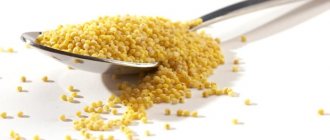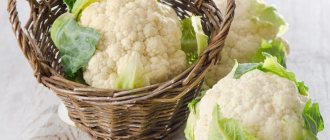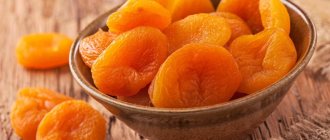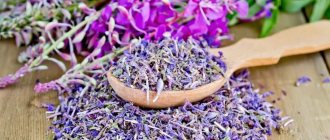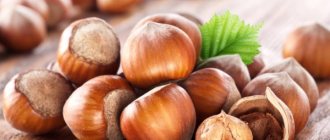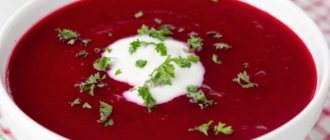After the birth of the baby, a nursing mother has to adhere to proper nutrition. The list of products is significantly reduced. Avoid foods that cause allergies, colic and bloating. Baked apples in the microwave for nursing women are just a godsend. The acids contained in the fruit evaporate, the taste becomes tender, juicy, without loss of sweetness.
As for apples, you should give preference only to green and baked ones.
This dessert is allowed after a week of lactation. After eating the first portion, it is important to monitor the reaction of the child’s body. If there is no rash, redness, or irritability due to abdominal pain, then the dish can be safely included in the diet.
When can a nursing mother eat fresh apples after giving birth?
A nursing mother can eat baked or fresh apples 5-7 days after giving birth. It only depends on how easy or difficult the birth was (natural, induced or caesarean section). If there are no contraindications (severe disturbances in the gastrointestinal tract), you can eat apples in small quantities, increasing the portion over time.
IMPORTANT: If you are afraid to eat fresh apples or your child is too restless or suffers from colic, start introducing baked apples into your diet.
When and how can you eat apples?
Beneficial properties of baked apples
Everyone knows that apples are a source of energy and strength, a storehouse of vitamins and beneficial elements. By eating one fruit a day, you replenish your body's daily requirement of iron. And three baked fruits fill the daily requirement of vitamins E, B1 and B2, and folic acid. In addition, the fruit contains potassium and manganese, ascorbic acid (vitamin C) and vitamin P. Apples are easily digestible and do not cause disorders.
This fruit performs the following beneficial functions:
- Strengthens the immune system and helps treat colds;
- Normalizes material metabolism;
- Improves the functioning of the heart and blood vessels,
- Has a beneficial effect on the functioning of digestion and intestines, eliminates constipation in nursing mothers;
- Stimulates brain function;
- Promotes weight loss and normalizes weight, nourishes the body;
- Improves the condition of bones and nails, skin and hair, reduces hair loss;
- Removes cholesterol and cleanses the body;
- Slows down the aging of skin cells, prevents the development of cancerous tumors;
- Stabilizes blood pressure;
- Improves mood, improves sleep, gives strength and vigor.

After heat treatment, apples become softer and tastier. They are easier to digest and quickly absorbed in the body of mother and baby. This is especially important for a child, because the baby’s body is just adapting to new conditions. Fresh apples can cause poisoning or worsen stools. You may get a bad product that was improperly grown or stored. Heat treatment kills bad and harmful bacteria and dangerous substances.
Baked fruits become safe for mother and baby. During heat treatment, they lose a small amount of nutrients. In addition, when baking, a large amount of fiber and pectin is formed, which speeds up metabolic processes and neutralizes any inflammation in the body. Therefore, nutritionists advise introducing the diet during breastfeeding first with baked and boiled foods, and only then with dishes with fresh fruits and vegetables.
How many apples can a nursing mother eat per day?
If you have never eaten apples after giving birth, do not introduce many fruits into your diet at once. Start a kind of “complementary feeding”: first apple compote, then a baked apple, after a while half of a non-sweet fruit, and then increase the portion (focusing on the child’s well-being).

What apples can a nursing mother eat?
Benefits during lactation
Apples contain many vitamins, macro- and microelements, and unsaturated fatty acids. They contain boron, copper, chromium, thallium, fluorine, iodine, manganese, cobalt, iron, potassium, thiamine, biotin, choline, beta-carotene, alpha-tocopherol, riboflavin, pantothenic, ascorbic and nicotinic acids, beta-cryptoxanthin. It is believed that regular consumption of apples improves a person’s overall well-being and improves their health.
Baked fruits contain slightly less vitamins and minerals. This dish is considered healthy food. Microwave-baked fruits are easily absorbed by the body. They become softer and tasty. Pediatricians allow women to consume this delicacy almost immediately after giving birth.

Baked apples are beneficial for young mothers in the following ways:
- prevent the development of iron deficiency anemia;
- strengthens the heart muscle and arteries. Baked apples reduce the level of bad cholesterol and increase the elasticity of blood vessels. Their regular use allows you to normalize blood pressure, prevent the development of thrombosis, and the appearance of problems in the functioning of the myocardium;
- stimulate brain function;
- increase the body's resistance to disease;
- help you get rid of extra pounds. Many women suffer from excess weight after childbirth. Apples are composed mainly of water and plant fibers. They improve metabolic processes and promote weight loss;
- minimize the likelihood of asthma and allergies. Recently it was discovered that apples contain quercetin. This substance prevents the development of oxidative processes in the respiratory system. This reduces the likelihood of allergies and asthma;
- prevent the development of vitamin deficiency;
- reduce the risk of diabetes;
- improve food digestion. This property is explained by the fiber content, which is necessary for the normal functioning of the digestive system;
- normalize the functioning of the intestinal tract. Many women suffer from constipation after childbirth. Pectin helps improve intestinal function;
- prevent the development of cancer pathology. This property is explained by the presence of a large amount of antioxidants in apples;
- improve the condition of hair and nails;
- strengthen bone tissue. Achieved due to the presence of phosphorus and calcium;
- improve your mood.
All components of baked apples are passed on to the baby in breast milk. Therefore, eating this dish by a nursing woman will benefit not only her, but also the baby.
Recipe for baked apples in the oven for a nursing mother while breastfeeding
What you will need:
- Several apples - choose sweet varieties, Golden works well.
- Cheese mass or cottage cheese – 200 g (any fat content)
- Raisins – 1-2 tbsp. (sweet and steamed)
- Cinnamon – a few pinches
- Honey – 1-2 tbsp.
How to cook:
- The apples should be washed, the tops cut off and the seed box cleaned (there should be a hole left).
- Mix steamed raisins with cottage cheese and honey, fill apples.
- Place parchment paper on oven sheet and arrange apples
- Place the apples in the oven, sprinkling each with a pinch of cinnamon.
- The oven temperature should be approximately 160-180 degrees.
- Keep the apples for 30-40 minutes and after baking, let them stand for another 10 minutes.
Which apples are best to bake?
There are many varieties of apples. They differ in color, shape, taste. Breastfeeding women are recommended to choose yellow and green varieties for baking. Fruits with red skin can provoke an allergic reaction in a child.
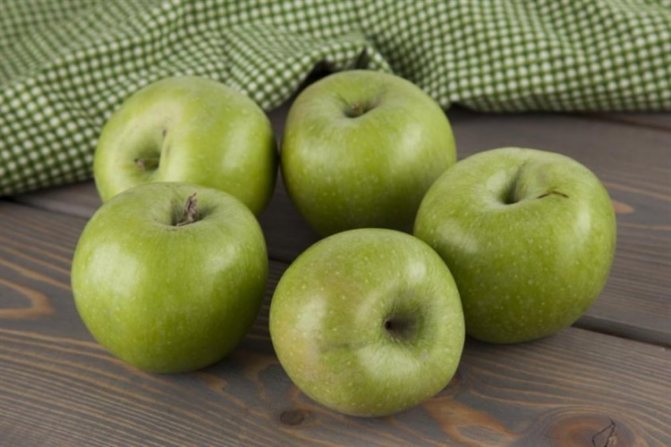
Green apples Semerenko variety
They also contain more sugars, which can negatively affect the condition of the baby’s intestinal tract. It is better to eat green apples for the first time after childbirth: they rarely cause complications in babies. The most delicious dish is made from baked apples of the Antonovka, Semerenko, Granny Smith and Golden varieties.
These varieties of fruits are distinguished by a denser structure and aromatic pulp. It is better to give preference to large green fruits. These apples are sweet and sour and when baked they become very tasty. They can also be used to cook duck and goose. Red and yellow soft varieties of fruit are less suitable for baking.
General cooking principles
The method for creating the dish is not complicated, but there are certain secrets and tricks that will help improve its taste:
- fresh fruits must be washed well and wiped with napkins. Using a sharp knife, cut off the tops (caps), remove the seed pods and a small amount of pulp to maximize the volume of the resulting “cup”. This method of preparing fruit for stuffing is used in almost every recipe;
- apples baked whole will not crack and will look appetizing if the fruit is pierced in several places;
- Before placing food, the multicooker bowl must be treated with butter;
- if you sprinkle lemon juice on the fruit, the fruit will not darken, will retain its natural color, and the pulp will remain in its natural form;
- in order for the filling to remain inside the cavity formed in the apple, you should not fill the “containers” to the very top, leaving room for the filling to rise as it boils when heated;
- you need to bake apples in an electrical appliance in the “Baking” mode;
- Cooking time depends on the power of the unit and averages 40–50 minutes.

Lemon juice
To decorate the finished dish, confectioners advise adding jam, fluffy whipped cream, chocolate chips or a handful of powdered sugar.
How to choose fruits
When talking about which vegetables can be used for breastfeeding, not the last question remains the choice of fruits. The ideal ones are those that you grew yourself. But this is not always possible, so you have to buy them in a store or market. The rules are simple:
- You can eat only seasonal fruits - not early and not imported. If you doubt that vegetables or fruits are grown without nitrates, soak them in salted water for about 2 hours.
- In winter, you can eat frozen fruits or seasonally purchased potatoes, beets, carrots - those that are well stored in cellars. But you should not try canned cucumbers, tomatoes, and zucchini. Vinegar and spices included in marinades will spoil the taste of breast milk and cause a negative reaction in the newborn’s body.
- Choose simple dishes and do not try fruits that are new to you, then the baby will be protected from the risk of developing allergies.
The common belief that allergies are caused by brightly colored fruits is a misconception. For example, pumpkin is calmly introduced even into the first complementary foods, just like beets, and carrots are added to lean borscht literally from the second month of the baby. Everything is individual, so there is no need to limit your diet due to unsubstantiated fears: if the mother does not have a tendency to allergies and a pronounced reaction to vegetables and fruits, then when feeding the baby you should not completely abandon the usual fruits.
Being a responsible mother, you should not forget about your body, which requires high-quality and nutritious nutrition. Vegetables and fruits are the richest source of many nutrients, so giving them up is simply irrational
While being careful in the first month after a small miracle appears in your family, still think about the fact that it is nutrition that supports lactation, and not just the desire to breastfeed the baby. Therefore, you should not put off the first samples of vegetables and fruits for a long time, otherwise the quality of the milk will only worsen, as will the mother’s mood due to dietary restrictions
Give health to yourself and your baby: make your menu wisely!
Directions for use and precautions
It is important to know the norms for consuming baked apples, for whom and when this dish is contraindicated. Such delicacies in large quantities can lead to disorders in the stomach and intestines, exacerbation of chronic pathologies of the digestive system. Also, some women and infants develop an allergy to apples.
The consumption rate during lactation is about 200 grams or 1-2 medium-sized fruits per day.
You are allowed to eat about five fruits per week. Doctors advise breastfeeding women to take precautions when consuming baked apples. Experts give the following recommendations:
- thoroughly rinse the fruits before putting them in the microwave or oven;
- Avoid buying imported apples that are too large. It is better to use fruits grown at your own dacha or in the garden to prepare the dish;
- buy varieties that suit the season;
- When cooking fruits in the microwave, use a minimum amount of spices. All ingredients of the recipe should be familiar to the baby and well accepted by his body;
- introduce the dish into the diet gradually, taking into account the reaction of the child’s body. For the first time, a young mother should try one fourth of the baked fruit. You need to monitor your baby for the next couple of days. If there are no negative changes in the baby’s well-being, then it is allowed to gradually increase the portion size. If your baby develops skin reactions (rash, redness), colic, or diarrhea, baked apples should be avoided for 3-4 weeks;
- Avoid eating baked apples if a woman has worsened gastritis or a stomach ulcer, has persistent constipation, or has an individual intolerance to this fruit.
With pumpkin
Baked apples in a slow cooker, cooked together with pumpkin, are considered a delicious healthy dessert. When serving, pour melted chocolate, whipped cream or sour cream over the dish, sprinkle with dried fruits, candied fruits or chopped nuts. This will create a very aromatic delicacy that children and adults will enjoy. At the same time, it can also be vegetarian if you do not add butter and sugar during cooking, but serve it as a second course with cereals.
Ingredients:
- pumpkin - half a kilo;
- apple fruits – 0.6 kg;
- sugar – 3 tablespoons;
- water – ½ multi-glass (80 ml);
- butter – 40 g.
- Wash the pumpkin, peel off the thick skin with a sharp knife, remove remaining fibers and seeds. Wash the pulp, dry it, cut into cubes up to 2 cm thick.
- Rinse the apples, blot them, cut them into halves, remove the core, stems, skin if desired, and chop into cubes. Cut the butter in the same way.
- Place butter, apples, pumpkin, sugar at the bottom of the bowl and pour in water. Stir with a wooden or silicone spatula, close the lid, set the stewing mode for an hour or baking for 35 minutes.
- After turning off the device, wait a few minutes and serve.
- Changes can be made to the recipe: water can be easily replaced with compote, fruit infusions or decoctions; sugar is replaced with honey or fruit and berry syrup.
- It is good to add vanilla sugar, cinnamon and cloves to the dish.


